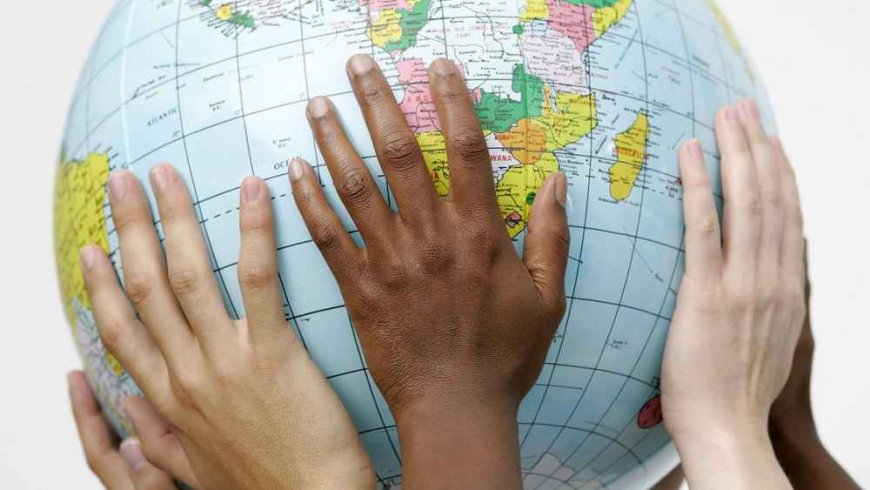The Significance of Global Education in a Connected World: Bridging Cultures, Empowering Minds
In an increasingly interconnected world, global education has emerged as a transformative force, equipping students with the knowledge,

In an increasingly interconnected world, global education has emerged as a transformative force, equipping students with the knowledge, skills, and cultural awareness to thrive in diverse and interconnected societies. By promoting global competence and cultural awareness, education lays the foundation for a future where collaboration, understanding, and empathy transcend borders. In this article, we analyze the significance of global education, exploring its role in nurturing informed global citizens and the impact of international collaborations and exchanges on shaping a more inclusive and interconnected world.
Fostering Global Competence
Global competence encompasses a range of skills and attributes that enable individuals to engage effectively and ethically with diverse cultures and perspectives. Through global education, students gain an understanding of the interconnectedness of global issues and develop the capacity to navigate complex global challenges.
Global competence involves critical thinking, cultural empathy, adaptability, and communication across languages and borders. These skills equip students to address global issues with a nuanced understanding of different contexts, fostering collaborative solutions that transcend geographical boundaries.
Embracing Cultural Awareness
Cultural awareness is a cornerstone of global education, cultivating empathy and respect for cultural diversity. By fostering an understanding of different cultural practices, beliefs, and values, education promotes an inclusive and harmonious global community.
Cultural awareness goes beyond mere tolerance; it encourages curiosity and appreciation for the richness of human experiences. Students equipped with cultural awareness are better equipped to form meaningful connections with people from different backgrounds, enhancing their ability to work collaboratively and creatively in a globalized world.
Nurturing Informed Global Citizens
Global education nurtures informed global citizens who are knowledgeable about global issues and are actively engaged in finding solutions. Through interdisciplinary learning experiences, students explore topics such as climate change, human rights, poverty, and sustainable development, gaining insights into the interconnected nature of these challenges.
Informed global citizens are conscious consumers who understand the impact of their choices on the world and its people. They are advocates for positive change, promoting social justice, equality, and sustainability on a global scale.
The Role of International Collaborations
International collaborations play a pivotal role in global education, facilitating the exchange of ideas, knowledge, and best practices. Collaborations between educational institutions across borders offer opportunities for students and educators to engage in cross-cultural learning experiences.
Through collaborative projects, virtual exchanges, and joint research initiatives, students gain exposure to diverse perspectives and cultures. Such interactions broaden their worldview, challenge assumptions, and foster empathy, all while developing the essential skills for intercultural communication and cooperation.
The Impact of International Exchanges
International student exchanges are powerful instruments of global education, enabling students to immerse themselves in different cultures and educational systems. Exchanges provide firsthand experiences that transcend classroom learning, promoting cultural understanding and personal growth.
Studying abroad fosters resilience and adaptability as students navigate new environments and challenges. They develop language proficiency, cultural fluency, and independence, attributes that are highly valued in an interconnected job market.
Moreover, international exchanges build lasting friendships and networks that span the globe. These connections lay the foundation for future collaborations, trade partnerships, and cultural exchanges, strengthening global ties and promoting a shared vision of peace and prosperity.
Preparing Future Global Leaders
Global education plays a pivotal role in shaping future global leaders who can address complex global challenges with innovative solutions. These leaders are equipped with a deep appreciation for cultural diversity, possess the skills to navigate global complexities, and are committed to creating positive change on a global scale.
As future leaders, they foster international cooperation, champion sustainable development, and work towards creating a world where diversity is celebrated, and global challenges are met with solidarity and collaboration.
Global education is not just a concept; it is a responsibility to nurture informed and empowered global citizens. By fostering global competence, cultural awareness, and empathy, education lays the groundwork for a more inclusive, interconnected, and harmonious world.
Through international collaborations and exchanges, students gain exposure to diverse perspectives, broadening their horizons and enriching their educational experiences. These transformative interactions inspire a shared commitment to building a more equitable, just, and sustainable world.
As we embrace global education, we embark on a collective journey towards a future that celebrates diversity, values cultural heritage, and leverages our collective strengths to address global challenges. In this shared pursuit, education becomes the cornerstone of a united and thriving global community.
